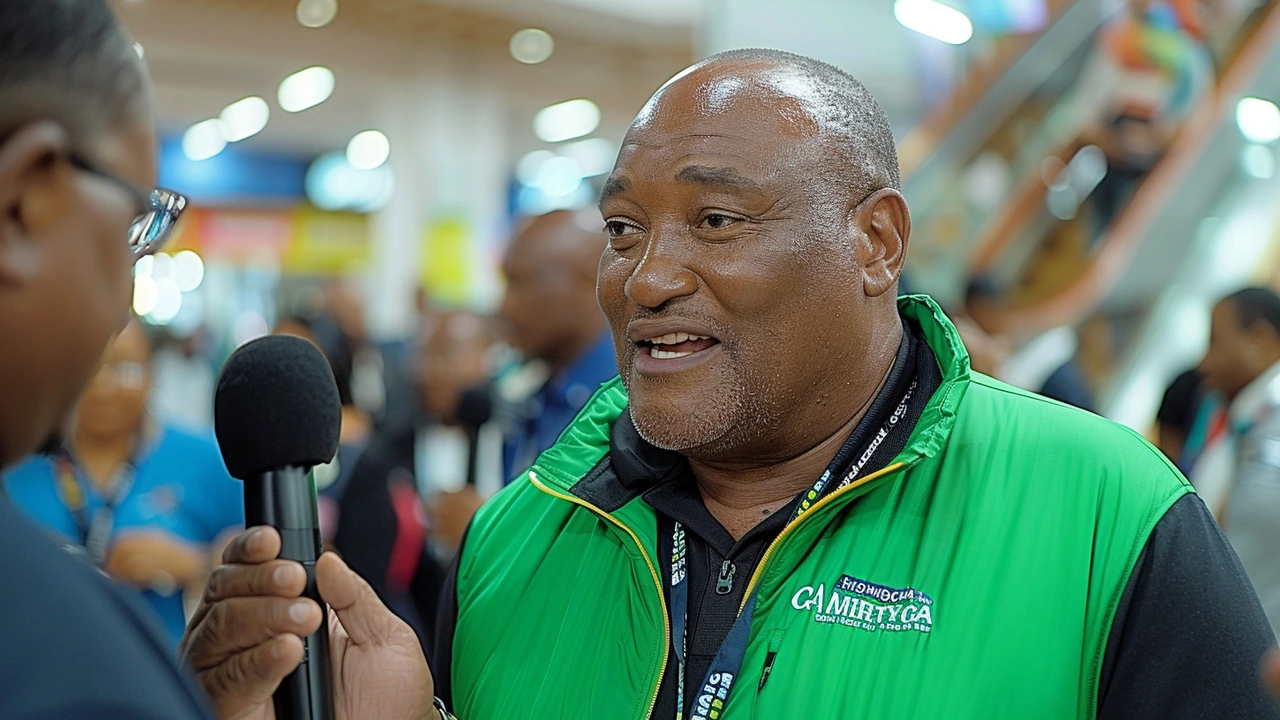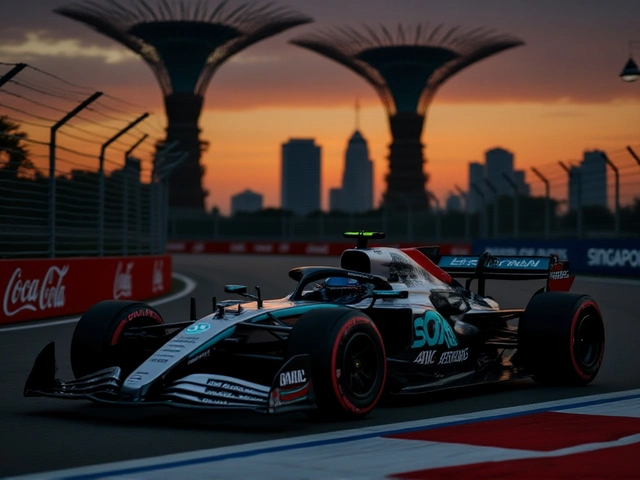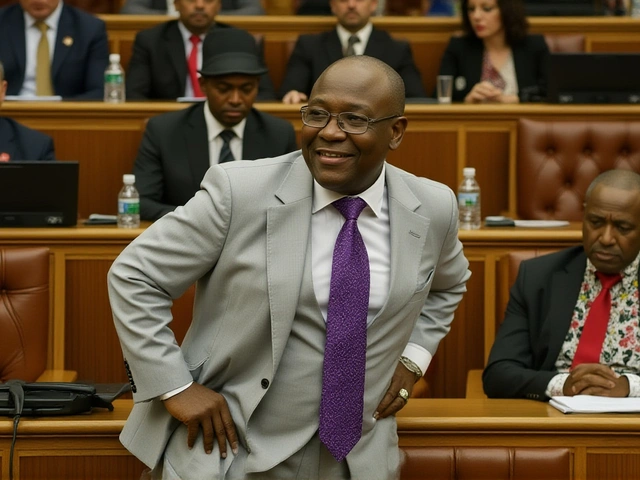Political Power Struggles Delay South Africa's Cabinet Announcement
South Africa is currently facing a significant delay in the announcement of its new cabinet, stemming from deeply ingrained power struggles within its Government of National Unity (GNU). Gayton McKenzie, leader of the Patriotic Alliance (PA), recently spoke out about the issue, attributing the hold-up to a fierce contest for influential positions among the various political parties involved. According to McKenzie, the primary motivator for many of these politicians is power accumulation, with policy considerations trailing far behind.
Politicians prioritize power over policy
McKenzie's candid admission provides a rare inside look at the machinations within the GNU, revealing a political landscape where power takes precedence over policy. This power struggle is seen as a major hurdle in President Cyril Ramaphosa's effort to finalize his cabinet following his second-term inauguration. The GNU is a diverse coalition encompassing multiple political parties, including the African National Congress (ANC), Democratic Alliance (DA), Inkatha Freedom Party (IFP), Patriots Alliance (PA), GOOD, Pan Africanist Congress (PAC), Freedom Front Plus (FF Plus), United Democratic Movement (UDM), Rise Mzansi, and Al Jama-ah.
McKenzie acknowledges that the PA, his own party, is also embroiled in this battle for cabinet positions. The PA is vying for key posts, including the police ministry and the home affairs department. Such admissions underscore the extent to which political ambitions and the quest for power can overshadow the collective goal of effective governance.
Ramaphosa's vision for the GNU
President Ramaphosa has been vocal about his vision for the GNU—a vision centered on collaborative governance rather than a relentless pursuit of individual power. Ramaphosa emphasizes the necessity for the GNU to rise above internal conflicts and focus instead on governing together for the betterment of the nation. This message, however, appears to be struggling to take root amid the ongoing jockeying for power.
The President’s call for unity is particularly crucial in a nation grappling with numerous socio-economic challenges. Effective governance requires a unified front, something that seems increasingly difficult to achieve as political factions within the GNU spar over influential posts.
The heart of the power struggle
At the heart of this power struggle is a complex web of ambitions and rivalries. Each party within the GNU comes to the table with its own agenda and vision for the country's future. The ANC, as the largest party, naturally wields significant influence but must navigate the competing interests of its coalition partners. Smaller parties, including the PA and others, see this era of shared governance as an opportunity to advance their agendas and secure key government positions.
For McKenzie and the PA, securing positions such as the police ministry and the home affairs department is seen as a strategic move that could enhance their influence and capacity to implement their policies. However, this relentless quest for power risks creating fractures within the GNU, undermining the potential for cohesive and effective governance.
The public's perspective
As these political machinations continue behind closed doors, the South African public watches with a mix of hope and apprehension. Citizens are acutely aware of the pressing issues facing the nation—from economic instability and unemployment to social inequality and service delivery challenges. The public's patience is wearing thin, with many calling for the government to move beyond internal wrangling and focus instead on delivering tangible results.
Ramaphosa's challenge lies not only in managing these internal dynamics but also in restoring public confidence in the government’s ability to govern effectively. This requires not just a strategic allocation of cabinet positions but a genuine commitment to collective and inclusive governance.
Looking ahead
As South Africa navigates this crucial period, the stakes are high. The formation of a functional and effective cabinet is not just a procedural necessity; it is a critical step in the nation’s journey toward stability and progress. The success of the GNU hinges on its ability to overcome internal divisions and prioritize the needs of the nation above individual political ambitions.
The delay in the cabinet announcement serves as a stark reminder of the challenges inherent in coalition politics. For the GNU to fulfill its promise, parties must find a way to harmonize their divergent interests and work toward a common goal. This requires not only political will but a shared commitment to the principles of good governance and public service.
As Ramaphosa and his administration continue their deliberations, the nation waits with bated breath. The decisions made in the coming days and weeks will shape the political landscape for years to come, influencing not only the trajectory of the current administration but the future of South Africa itself.
Conclusion
In conclusion, the delay in South Africa's cabinet announcement underscores the complex interplay of power and politics within the GNU. While the road ahead is fraught with challenges, it also presents an opportunity for the nation's leaders to demonstrate their commitment to collective governance and effective public service. For South Africa, the true test lies not in the allocation of power but in the ability to rise above individual ambitions and work together toward a brighter future.







Comments
Arvind Pal
This is just politics as usual. Power hungry people everywhere. They don't care about the people they're supposed to serve.
Chris Richardson
It's frustrating to see governance reduced to a game of musical chairs. Ramaphosa needs to draw a hard line and prioritize competence over coalition math.
Mark Archuleta
The GNU structure is inherently fragile when power distribution isn't anchored in measurable outcomes. Without KPIs for ministerial performance, you're just trading titles like baseball cards.
Pete Thompson
Let's be real - this isn't about power. It's about control. The ANC's been running the show since '94 and now they're terrified of sharing the spotlight. This whole GNU is a distraction tactic.
J Mavrikos
I mean, if you're going to form a coalition, why not just let the party with the most votes run things? Why force everyone to play nice when they clearly don't want to?
Sandy Everett
It's heartbreaking to watch. People are suffering - power outages, water shortages, unemployment - and instead of fixing it, they're fighting over who gets to sit at the big table.
DJ Paterson
There's a deeper truth here. Power isn't just about titles - it's about access to resources, influence over policy, and the ability to protect allies. The PA wants police and home affairs because those ministries control who gets monitored, who gets deported, who gets investigated. It's not about policy - it's about leverage.
Avantika Dandapani
I really hope someone remembers that the people who voted for these parties didn't vote for power plays. They voted for change. For food on the table. For safety. For dignity. This delay feels like a betrayal.
rakesh meena
The cabinet delay is killing the rand and the people's trust. Time to pick the team and move on
toby tinsley
I wonder if anyone has considered that perhaps the problem isn't the politicians - it's the system that rewards competition over cooperation. What if we designed governance around shared outcomes rather than shared seats? Maybe then we'd stop seeing ministries as trophies.
Stuart Sandman
You think this is bad? Wait till you find out who's really pulling the strings behind the PA. Foreign interests. That's what this is. A puppet show for global capital. The police ministry? That's where the real leverage is. Control the cops, control the narrative.
Vinod Pillai
This is what happens when you let amateurs run the country. The ANC is weak. The DA is corrupt. The PA is a joke. Everyone wants power but no one wants to work. South Africa is doomed.
Richard Berry
I know it seems hopeless but I still believe in ramaphosa. He's trying. The system is broken but people are still hoping. Don't give up on the idea of good leadership
Sumit Garg
The entire GNU is a performative illusion. The real power lies with the shadow technocrats - the IMF advisors, the mining conglomerates, the private equity firms that own the state-owned enterprises. The politicians are just actors reading scripts written by Wall Street.
Damini Nichinnamettlu
They think they're smart. But the people know. We see the empty shelves. The broken clinics. The kids walking miles for water. No amount of cabinet titles will fix that.
Nikhil nilkhan
Maybe the real solution isn't more negotiation. Maybe it's a reset. A new constitution. A public vote on who gets to be in charge. Not party deals. Not backroom bribes. Real democracy.
sandeep singh
The PA wants police ministry? That's laughable. They don't have the experience. They don't have the discipline. This isn't about governance - it's about revenge against the ANC. And that's why South Africa will never heal.
Ayushi Dongre
The formation of a cabinet is not merely an administrative act; it is a symbolic affirmation of the social contract between the governed and the governors. When this process is protracted due to partisan self-interest, the legitimacy of the state is eroded at its foundational level. The public's disenchantment is not irrational - it is epistemologically grounded.